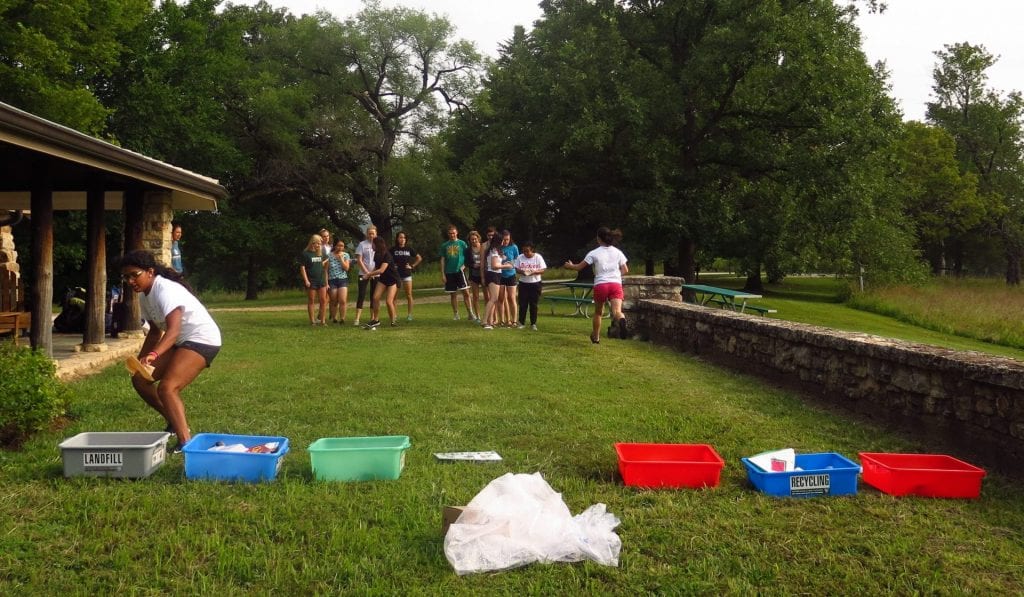Waste Intern Jacob Halladay-Glynn recounts his experience working with middle school students from local Normandy Middle School, who visited Washington University for the Engage 360 program on the first Friday of November. (Note: the picture above was taken during a recycling relay game with WashU students).
“On your marks, get set, go!” Two teams of Normandy students ran from their assorted waste bins to piles of trash on the other side of the room. Picking up one piece of trash and sorting it into their team’s landfill, recycling, and compost bins, the next team member was tagged to run and pick up the next item. Each item sorted correctly earned the team 1 point, and the first team to sort all 15 items earned 2 bonus points. By the time the first team finished, the second team still had 3 items left to sort. Still cheering on its team members, the second team did groan when they lost the speed race.
I brought the first team’s bin to a table, and began picking out individual items. The items were common, but complicated. Both teams wanted to recycle much more than was possible, with the first team adding a number 6 coffee cap, Styrofoam cup, and wax-coated pizza box to the recycling bin, and scoring 3/15 on accuracy. Students held their breath when the second team had correctly sorted 5/15 items correctly, and I held up the last, deciding item: a grocery bag. It had been in the landfill bin, and students from both teams shouted and groaned in confusion about whether it belonged.
I decided to hold up the previously-judged candy wrapper, and asked why it hadn’t been recyclable. Students shouted “It’s too thin!” “Thin plastics go in the trash!” and the game was decided – slow and steady had won the race. Using phrases like “Six nix” and “If you can eat it, you can compost it”, the students showed renewed understanding and excitement, calling for a rematch. After the second relay race, the teams had a photo finish, giving them both the speed bonus, and the game ended in a tie when both teams sorted 14/15 items correctly.
Just under sixty students took part in the game and went home with new knowledge on the need for recycling, and broke through confusion on what goes where. This was just one of the many presentations the Office of Sustainability (OOS) Waste Team offers to teach members and guests of the Washington University community about proper waste sorting. While this event was tailored toward middle school students, the OOS team is available to give Recycling Genius Trainings or other presentations on waste education outreach, if others would like to host a waste sorting relay or otherwise take advantage of our outreach resources.
Interested in organizing a recycling relay for your department or student group? The Office of Sustainability can lend you the necessary supplies! Email clarasteyer@wustl.edu and read the Recycling Relay Facilitator Instructions for all the tips you need to organize a successful relay!
